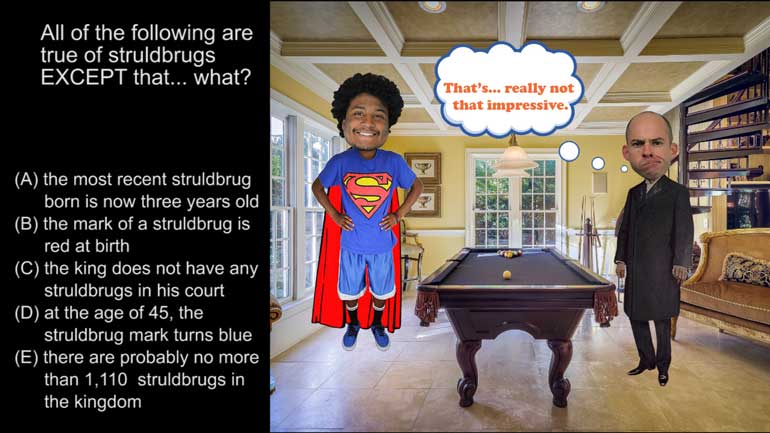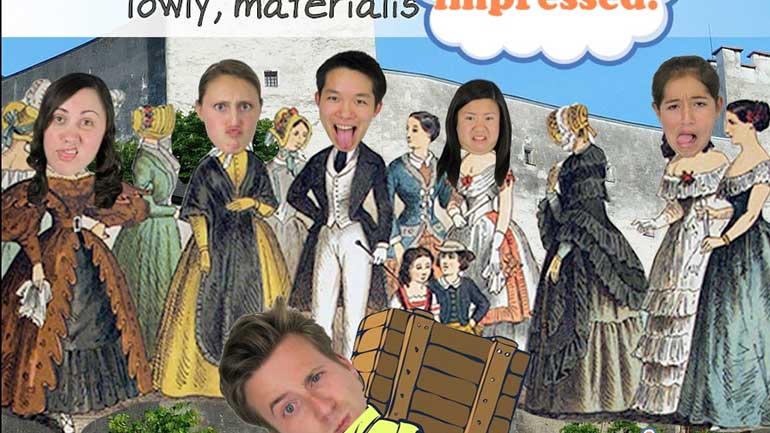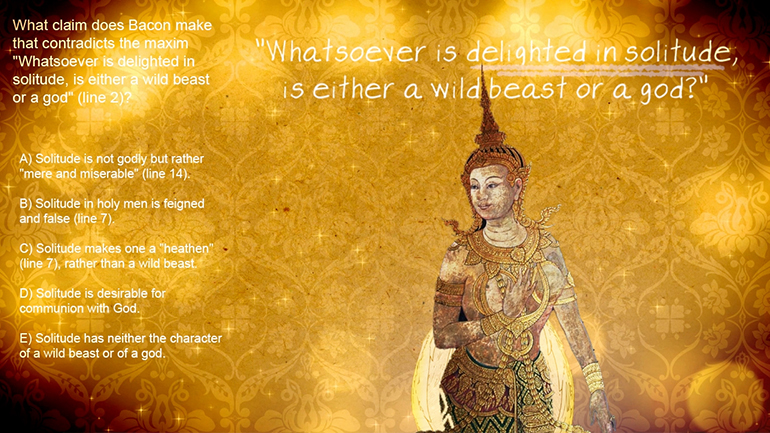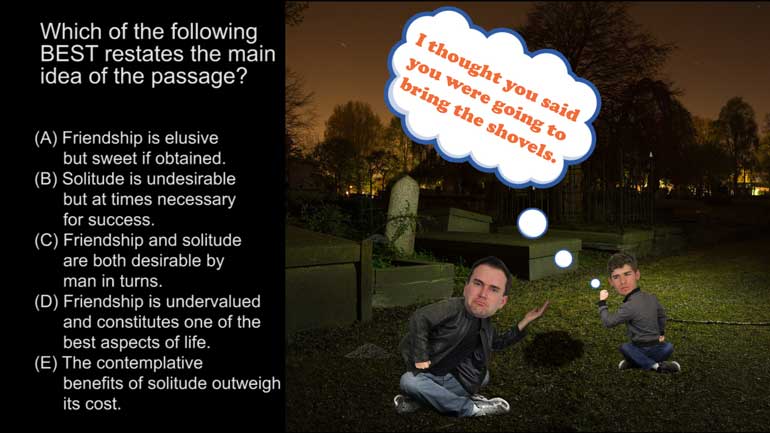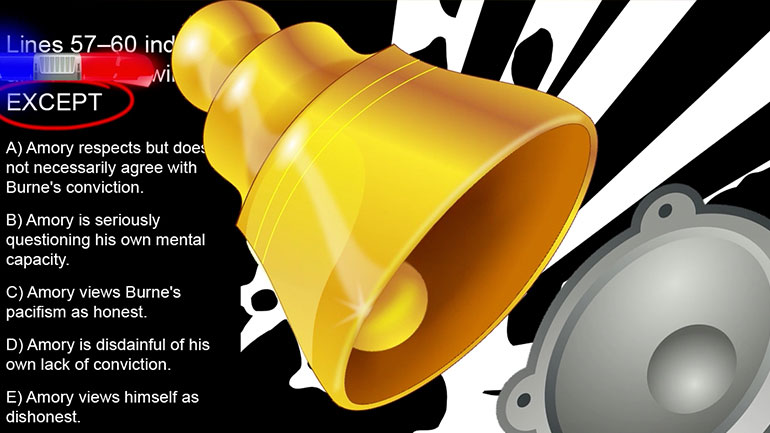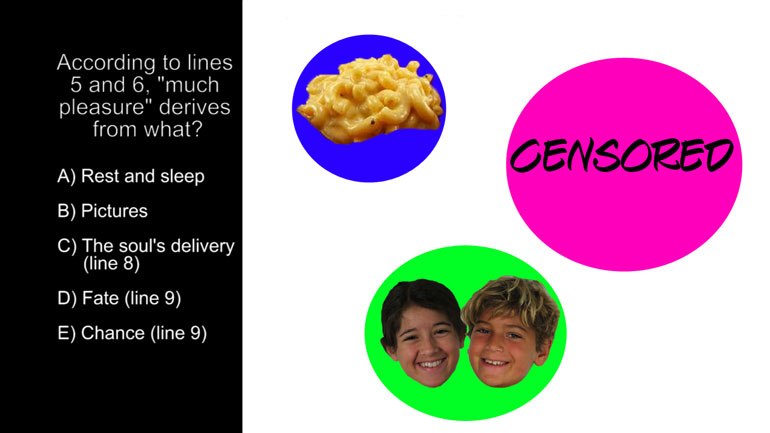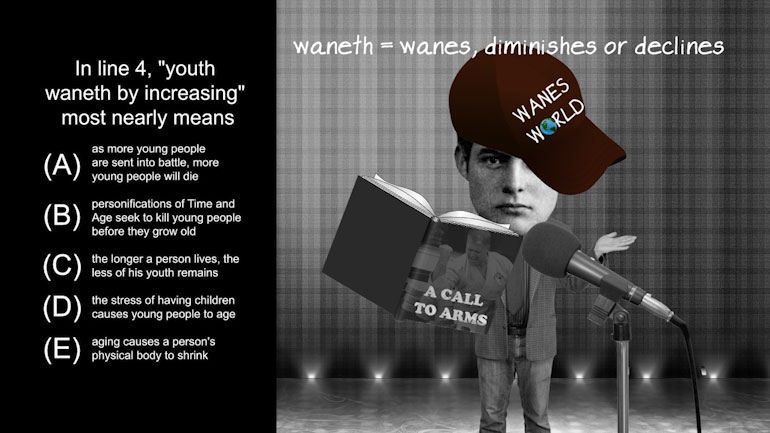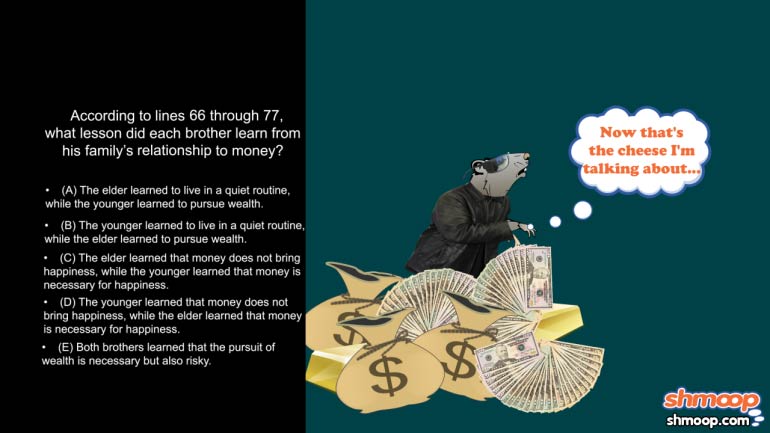ShmoopTube
Where Monty Python meets your 10th grade teacher.
Search Thousands of Shmoop Videos
Literary Comprehension Videos 14 videos
AP English Literature and Composition 1.2 Passage Drill 1. All of the following are true of struldbrugs except that what?
AP English Literature and Composition 1.9 Passage Drill 1. Which of the following is offered as a possible explanation for the struldbrugs' absence...
AP® English Literature and Composition Passage Drill 2, Problem 1. What claim does Bacon make that contradicts the maxim "Whatsoever is delig...
AP English Literature and Composition 1.1 Passage Drill 2 683 Views
Share It!
Description:
AP® English Literature and Composition Passage Drill 2, Problem 1. What claim does Bacon make that contradicts the maxim "Whatsoever is delighted in solitude, is either a wild beast or a god?"
Transcript
- 00:03
What's shmoop got to do with it...?
- 00:13
Time to get your read on. Hit pause and see what this passage has to say for itself.
- 00:26
What claim does Bacon make that contradicts the maxim "Whatsoever is delighted in solitude, is either a wild beast or a god?"
- 00:33
And here are the potential answers...
- 00:39
Okay... this question wants to know which answer choice contradicts something that Bacon
Full Transcript
- 00:45
says early in the passage.
- 00:47
In order to answer this one correctly, we first have to interpret what the original
- 00:50
maxim is saying...
- 00:51
...and then find the option that basically says... the opposite.
- 00:55
All right, so... "Whatsoever is delighted in solitude, is either a wild beast or a god?"
- 01:05
"Delighted in solitude"... well, we can take that to roughly mean... "enjoying being alone."
- 01:10
So the maxim is saying that, if someone enjoys being alone, they are either a wild beast
- 01:16
or a god.
- 01:24
Okay, now... which statement contradicts that?
- 01:27
We don't have to look too far.
- 01:29
A -- Solitude is not godly but rather "mere and miserable."
- 01:34
He comes flat out and says that solitude is NOT godly...
- 01:37
...so it sure seems like answer A is our horse. "Solitude in holy men is feigned and false?"
- 01:43
No mention of holy men in the maxim, so nothing to contradict there.
- 01:46
"Solitude makes one a heathen, rather than a wild beast."
- 01:50
We might be tempted to go with this one... except that Bacon says on line 3 that the
- 01:53
first half of the maxim is true. Which rules out choice E as well.
- 01:58
And answer D -- "Solitude is desirable for communion with God"... doesn't really have
- 02:03
a thing to do with the maxim. So... this one is clearly wasting our time.
- 02:07
Yup -- the correct answer is A.
- 02:09
On line 14, Bacon says that the second half of the maxim is false because life is pretty
- 02:13
lonely and miserable without friends.
- 02:17
We feel the same way about English literature.
- 02:19
Yeah, yeah... we're dorks, and proud of it.
Related Videos
AP English Literature and Composition 1.2 Passage Drill 4. As which of the following is the object being personified?
AP English Literature and Composition 1.4 Passage Drill 3. How is Burne's view of pacifism best characterized in lines 57 through 67?
AP English Literature and Composition 1.6 Passage Drill 5. Death is primarily characterized as what?
AP English Literature and Composition 1.7 Passage Drill 5. Which line indicates the turn or shift in this poem?
AP English Literature and Composition 1.9 Passage Drill 4. Lines 32-34 are best understood to mean what?
